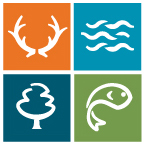PARTNER EVENT: National Wildlife Federation – Federal policymakers are giving increasing focus to environmental justice mapping tools, recognizing their potential in furthering environmental and climate justice. These tools can reveal what kinds of communities are (and aren’t) at risk from environmental hazards, and the compounded pollution and climate burdens some communities face. These tools can also help policymakers understand where environmental justice communities are located, and where climate impacts are being felt first and worst—information that should help inform the ambitious climate priorities of the Biden-Harris administration.
This webinar will highlight lessons learned from existing local and regional mapping tools and efforts to inform these current national discussions.
To create a healthier future for people and wildlife, we must improve our climate resilience and identify disparate and cumulative impacts of pollution.
Learn how environmental justice mapping tools can help policymakers chart an equitable path forward: natwild.life/ejmapping
We share viewpoint of the National Wildlife Federation that stands in solidarity with those who demand justice for the constant stream of deaths of black men and women. We won’t reach our aspiration for a better and equitable future until all people can safely enjoy the outdoors without fear of violence or racism.
Additionally, the Indiana Wildlife Federation believes that in order to be the best collaborators to address our state’s most pressing conservation issues, that every person must have a seat at the table regardless of their race, gender ethnicity, sexual identity, socio-economic status, age, ability, religion, and political philosophy.
We fully acknowledge that we can carry out our work with greater mindfulness and inclusivity if we recognize the social, economic, and political contexts that shaped the early environmental and conservation movements, and resulted in cultural biases that permeate our institutions today.
Only by understanding and addressing these biases will we justly and equitably engage with one another while pursuing our conservation goals.

